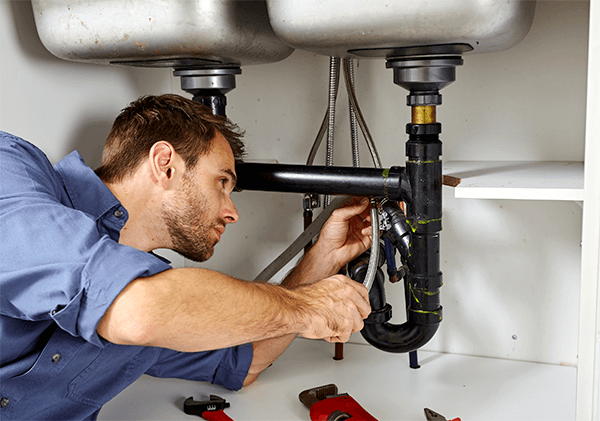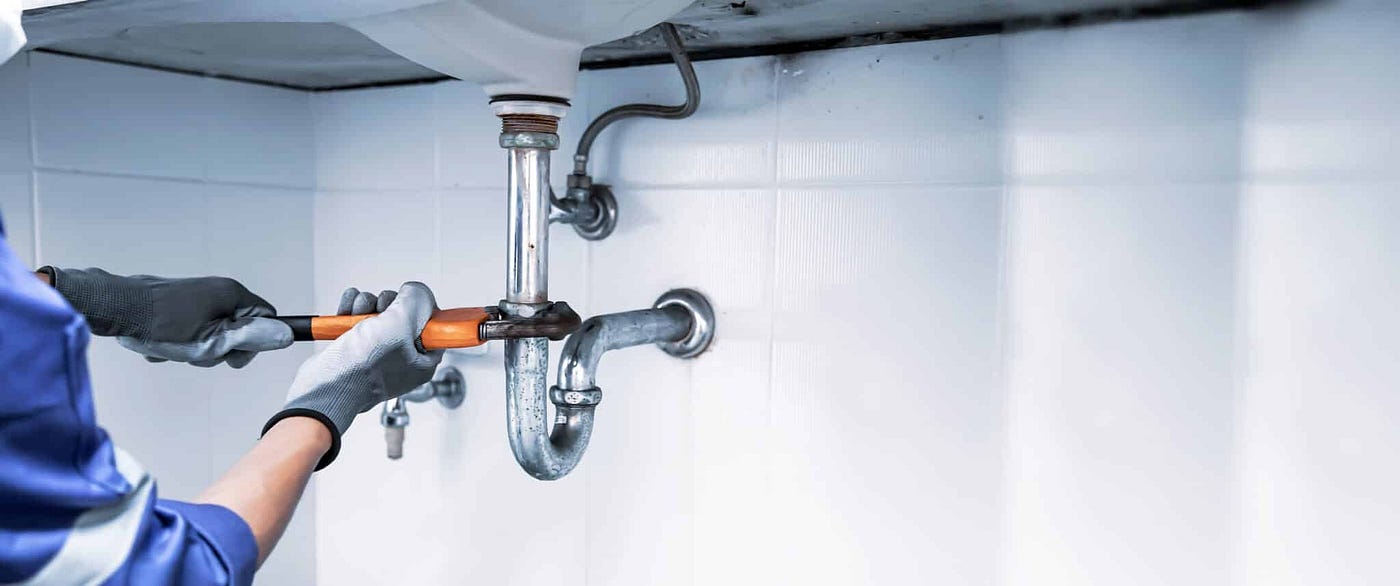Do you find yourself trying to locate facts and techniques on 7 Plumbing Industry Trends You Need To Know?

Intro
The plumbing sector is going through a transformative phase driven by technical innovations and growing worries for sustainability and performance. This article discovers arising fads and advancements shaping the future of pipes.
Regulative Landscape
Governing frameworks play an important duty fit the fostering of pipes innovations, with criteria and codes governing whatever from water performance to item safety and security. As modern technologies continue to develop, regulatory bodies should adjust to guarantee consumer security and environmental stewardship.
Future Outlook
The future of plumbing is identified by continued innovation and combination with various other industries such as IoT, renewable resource, and building automation. By accepting sustainable techniques, leveraging arising modern technologies, and prioritizing user-centric design, the pipes industry is positioned to resolve the progressing requirements of society while lessening its ecological footprint.
Augmented Reality in Pipes
Enhanced Truth (AR) innovation is transforming pipes by supplying specialists with real-time aesthetic support for fixing and repair work jobs. AR-enabled wise glasses or mobile applications overlay digital details onto the physical atmosphere, aiding plumbings visualize pipeline layouts, recognize hidden leaks, and implement fixings with accuracy.
Influence of 3D Printing
The introduction of 3D printing has presented brand-new opportunities in producing plumbing components. From custom-designed fixtures to intricate pipe installations, 3D printing allows for rapid prototyping and on-demand production, decreasing preparations and enabling greater modification in plumbing design.
Health and Safety Features
In response to heightened problems for health and safety, plumbing fixtures are including features such as antimicrobial surfaces, touchless procedure, and self-cleaning devices. These technologies not only boost hygiene however also promote customer comfort and comfort.
Hygiene-focused Components
Touchless faucets, self-sanitizing bathrooms, and antimicrobial surface areas are coming to be increasingly common in residential and industrial setups, decreasing the threat of germ transmission and promoting a cleaner, much healthier atmosphere.
Water High Quality Tracking
Innovations in water quality surveillance modern technologies make it possible for property owners to keep track of the purity and safety of their water in real-time. Smart water quality sensing units can find contaminants, pH degrees, and temperature variations, empowering individuals to take proactive measures to make certain water safety.
Remote Pipes Solutions
Remote diagnostics and online support are changing the way plumbing services are provided. Through video clip conferencing and remote accessibility innovations, plumbings can troubleshoot problems, offer support for do it yourself repairs, and also do remote inspections, offering greater ease of access and convenience to property owners.
Challenges and Opportunities
While pipes advancements hold enormous assurance, they additionally present difficulties such as data privacy worries, regulatory compliance, and the demand for labor force training. Resolving these challenges requires partnership in between sector stakeholders and regulatory bodies to guarantee risk-free and accountable application of new technologies.
Smart Plumbing Systems
Including smart modern technology right into pipes systems makes it possible for remote surveillance, leak detection, and automated upkeep. Smart sensors and IoT (Web of Points) gadgets allow property owners and plumbing professionals to check water usage and spot concerns in real-time, causing much more reliable resource administration and aggressive upkeep.
Water Efficiency Solutions
With boosting focus on water preservation, cutting-edge options are being developed to reduce water waste in plumbing systems. High-efficiency fixtures, greywater recycling systems, and smart watering controllers are among the innovations assisting consumers reduce their water impact while keeping comfort and convenience.
Sustainable Materials
The change in the direction of sustainability includes pipes products, with a growing choice for environment-friendly options. Naturally degradable piping materials, such as PEX (cross-linked polyethylene) and HDPE (high-density polyethylene), deal sturdiness and resistance to corrosion without endangering environmental honesty.
Anticipating Maintenance
Predictive maintenance strategies leverage data analytics and machine learning algorithms to expect and protect against plumbing concerns prior to they occur. By evaluating historical information and efficiency metrics, predictive maintenance formulas can recognize patterns and anomalies, allowing positive interventions to avoid expensive fixings and disturbances.
Final thought
Finally, the future of plumbing is defined by a merging of modern technology, sustainability, and user-centric style. By accepting smart options, sustainable products, and proactive maintenance techniques, the plumbing sector can improve performance, promote safety and security, and contribute to a much more sustainable future.
Plumbing Technology Trends 2024: Shaping a Sustainable and Efficient Future
Plumbing Technology: A Beacon of Innovation
Intelligent Plumbing Systems: The adoption of smart plumbing solutions offers unparalleled control over water usage, preventing waste and ensuring optimal efficiency. These systems can be installed by qualified contractors and may require technicians with expertise in new codes for proper functionality. Eco-Friendly Piping: Innovations in piping materials, like PEX and recycled content options, are making plumbing systems more sustainable. These materials are not only better for the environment but also durable and flexible, making them easier to install and less likely to need repairs. Automated Leak Detection: New plumbing technologies include systems that can automatically detect leaks. This is a big deal because it means we can fix them before they cause a lot of damage or waste too much water. It’s all about catching problems early and saving resources. Energy-Efficient Water Heaters: There’s also a big push towards devices that use less energy. This includes solar and tankless models, which provide hot water only when it’s needed, cutting down on energy use and costs. Plumbers: Champions of Sustainability
Adopting Green Practices: Contractors who specialize in sustainable plumbing can ensure your system meets the latest regulations and utilizes efficient valves. They undergo comprehensive training programs that emphasize sustainability in practices like eco-friendly installations. Water Conservation Efforts: Through the installation of high-efficiency appliances, plumbers are essential in reducing water consumption and promoting conservation. When repairing or replacing older fixtures, plumbers can recommend high-efficiency options that comply with local codes. Pipe: The Lifeline of Modern Plumbing
Innovative Pipe Solutions: The use of environmentally friendly and durable materials in pipes, like PEX and recycled content options, reduces the ecological footprint and enhances water quality. These innovative pipe solutions may require specialized repair techniques from qualified plumbers familiar with the materials. Advanced Leak Detection: Modern pipes are now more frequently equipped with sensor technology that can identify leaks early, conserving water and preventing damage. Early leak detection can save homeowners money on repair costs and potential water damage. Water Heater: At the Forefront of Efficiency
Renewable Energy Heaters: Solar heaters and other renewable energy-powered models are becoming more common, offering an eco-friendly alternative to traditional methods. These benefit the environment but can also potentially lead to lower water bills through reduced energy use. On-Demand Heating: Tankless heaters have gained popularity for their ability to provide hot water as needed, minimizing energy waste. This innovative technology eliminates the need for a large storage tank, freeing up valuable space and simplifying the installation process for qualified plumbers. https://intownplumbingtx.com/articles/plumbing-technology-trends/

I stumbled upon that piece about while doing a lookup on the internet. Enjoyed our entry? Please share it. Help somebody else find it. Bless you for being here. Return soon.
Book Appointment